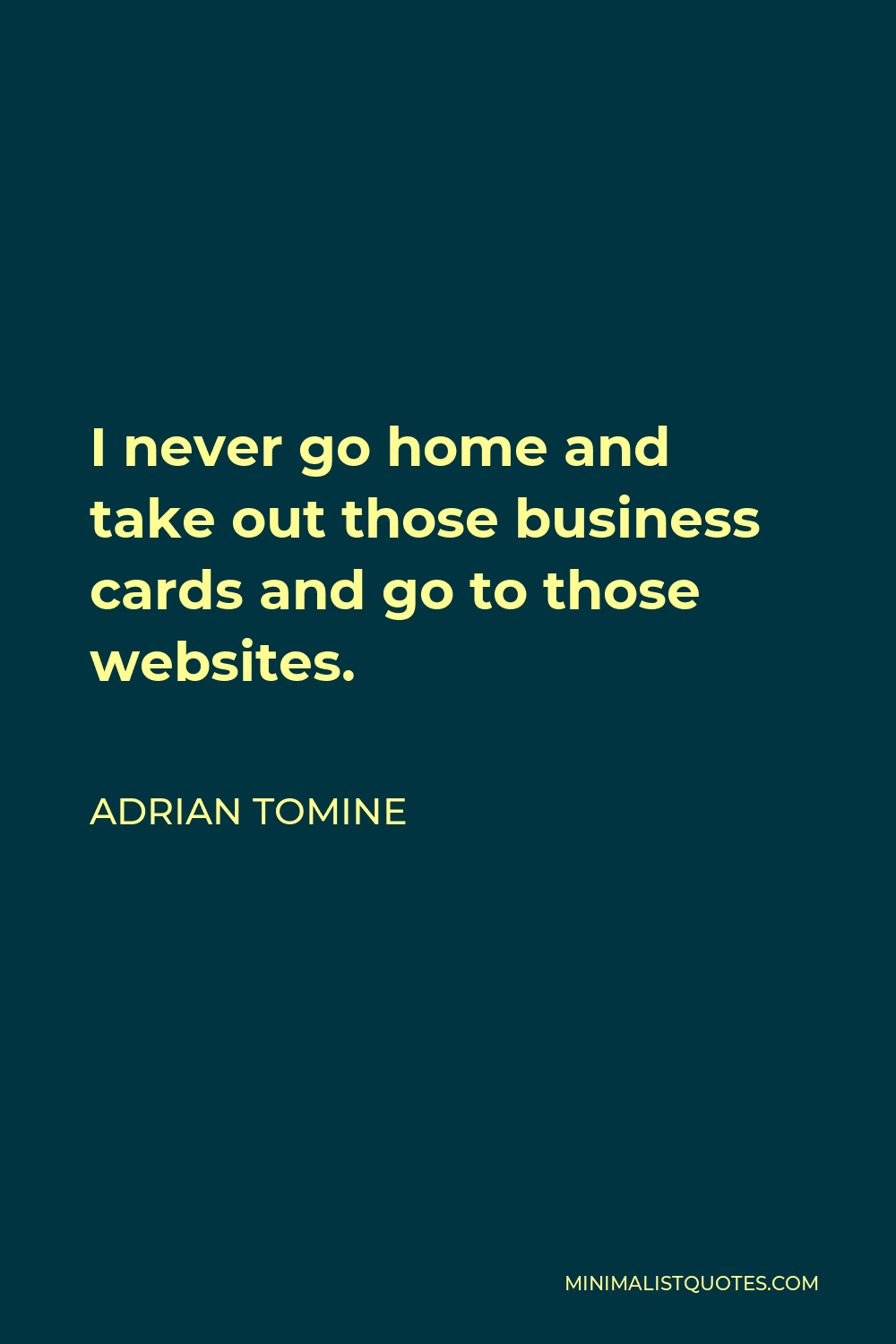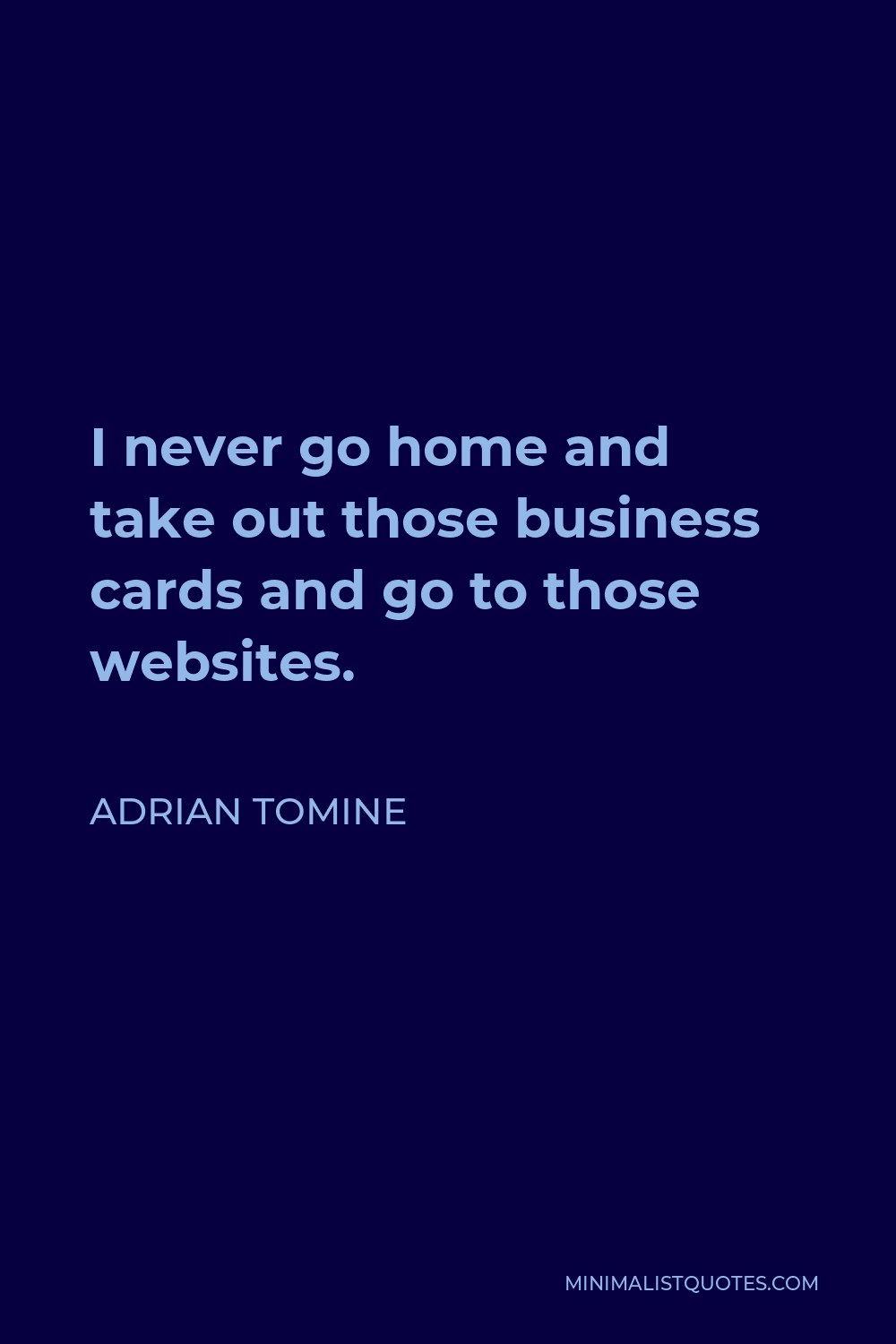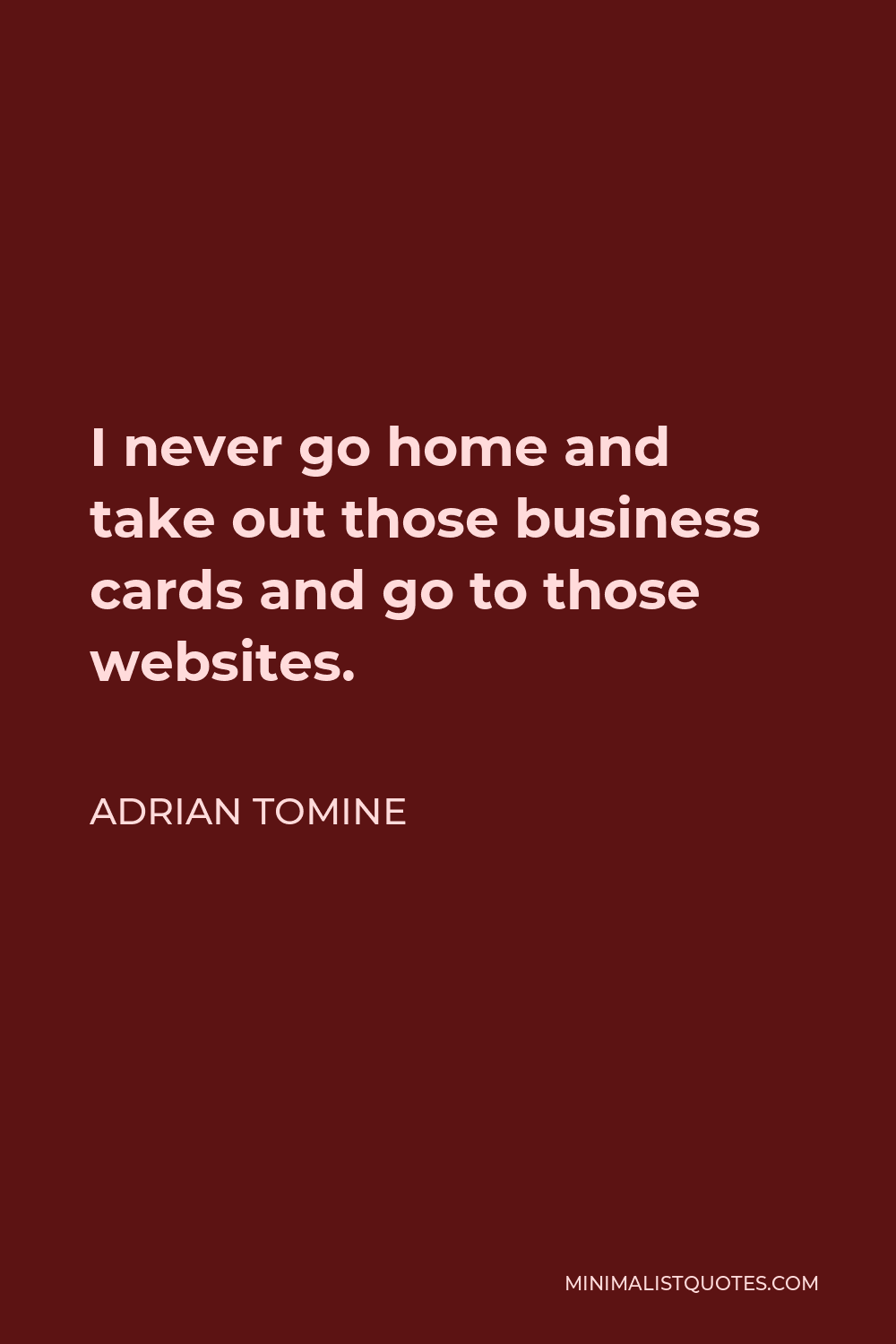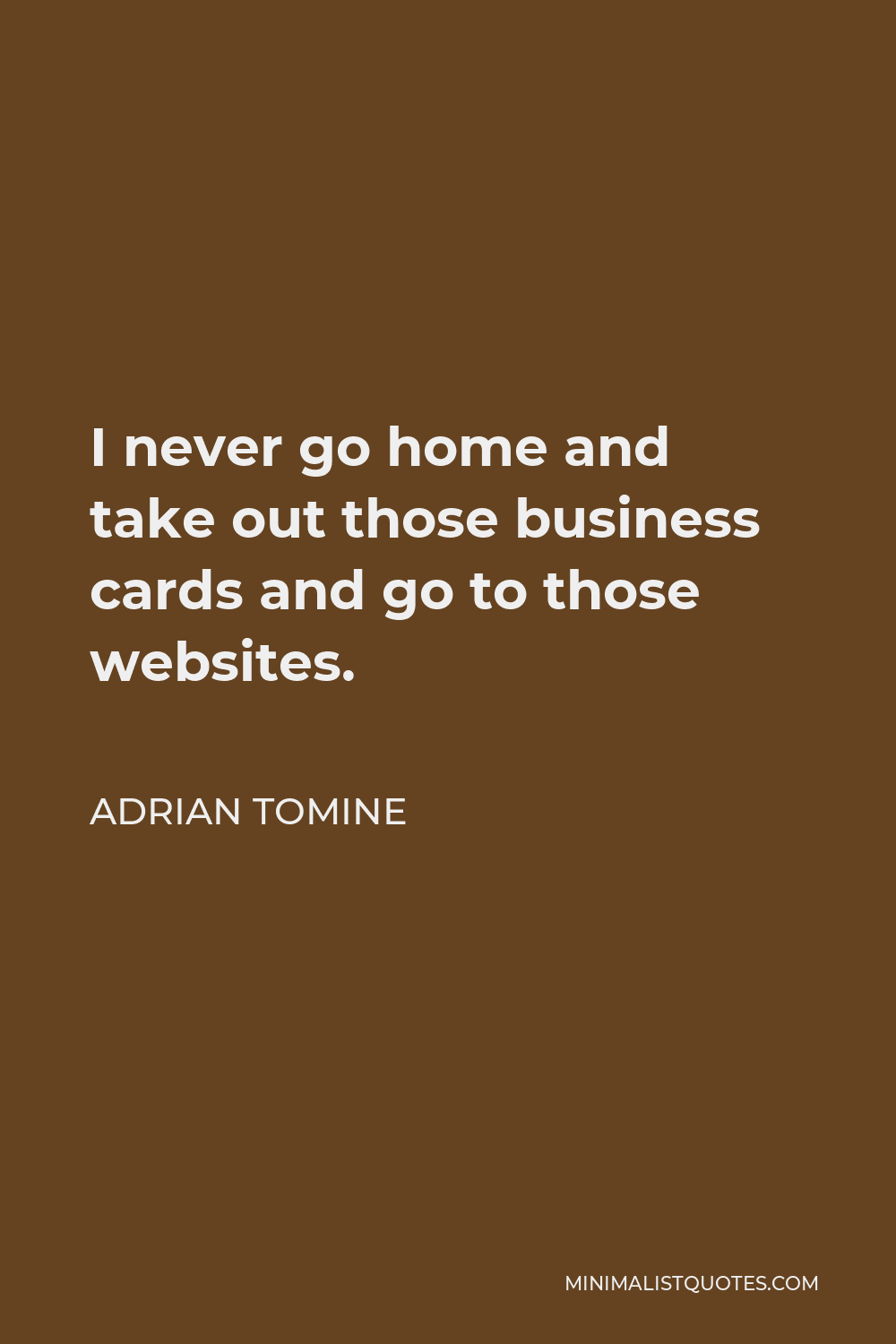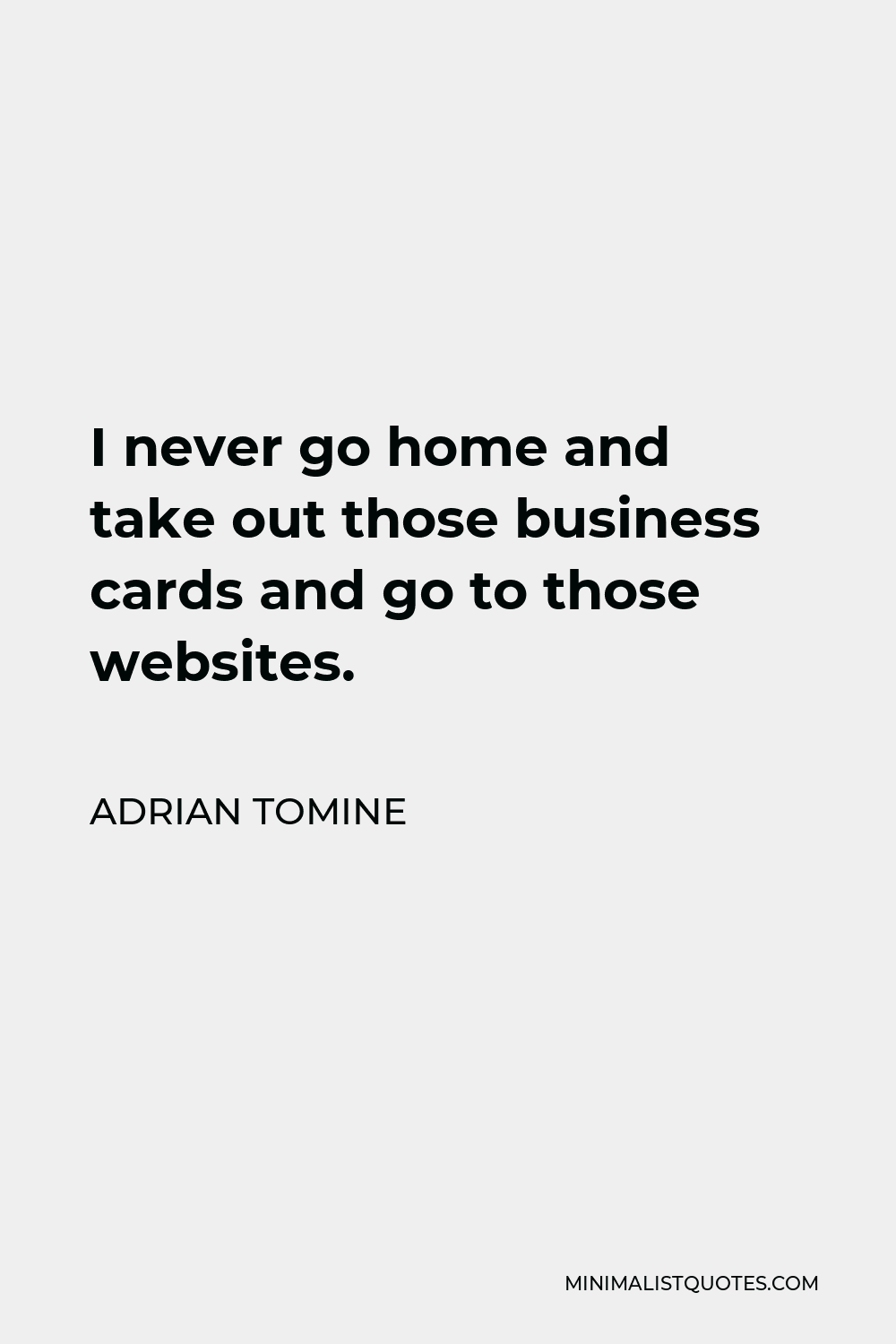I started publishing my comic while I was still living with my parents.
ADRIAN TOMINEI never go home and take out those business cards and go to those websites.
More Adrian Tomine Quotes
-





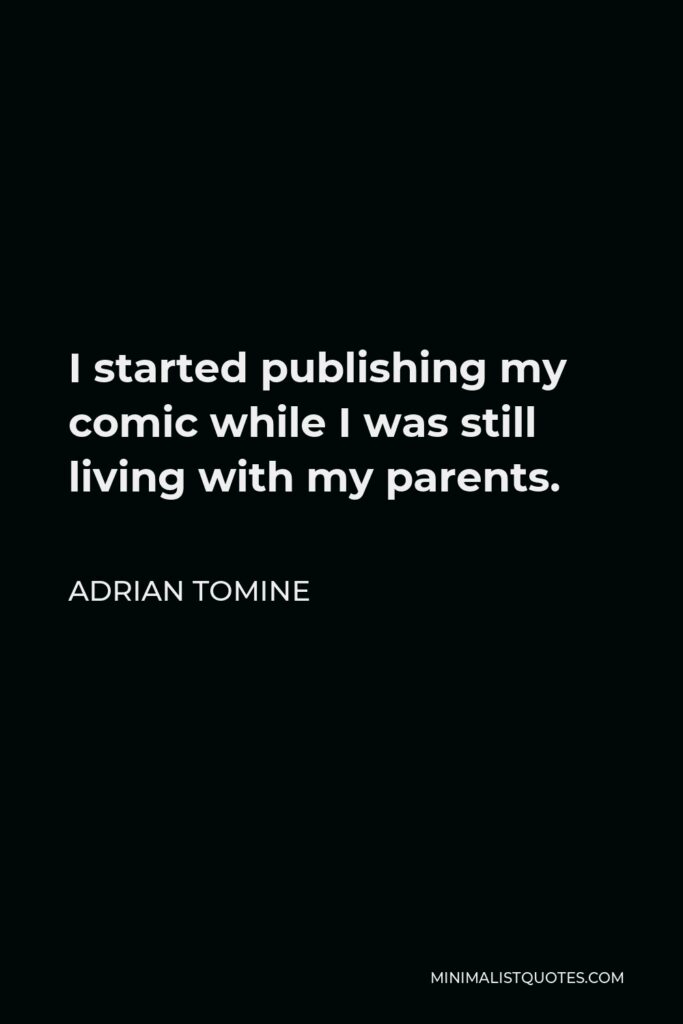

-





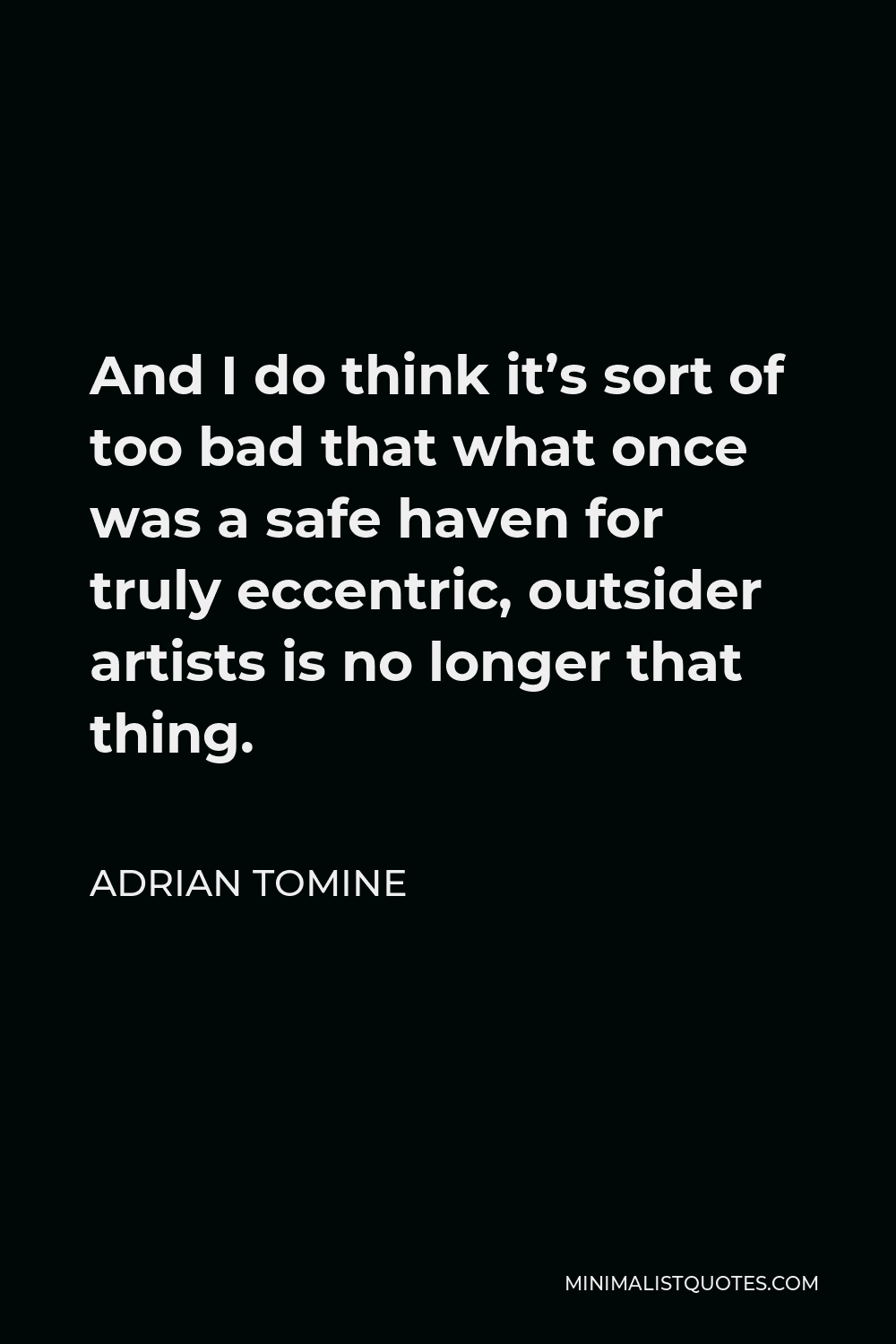
And I do think it’s sort of too bad that what once was a safe haven for truly eccentric, outsider artists is no longer that thing.
ADRIAN TOMINE -





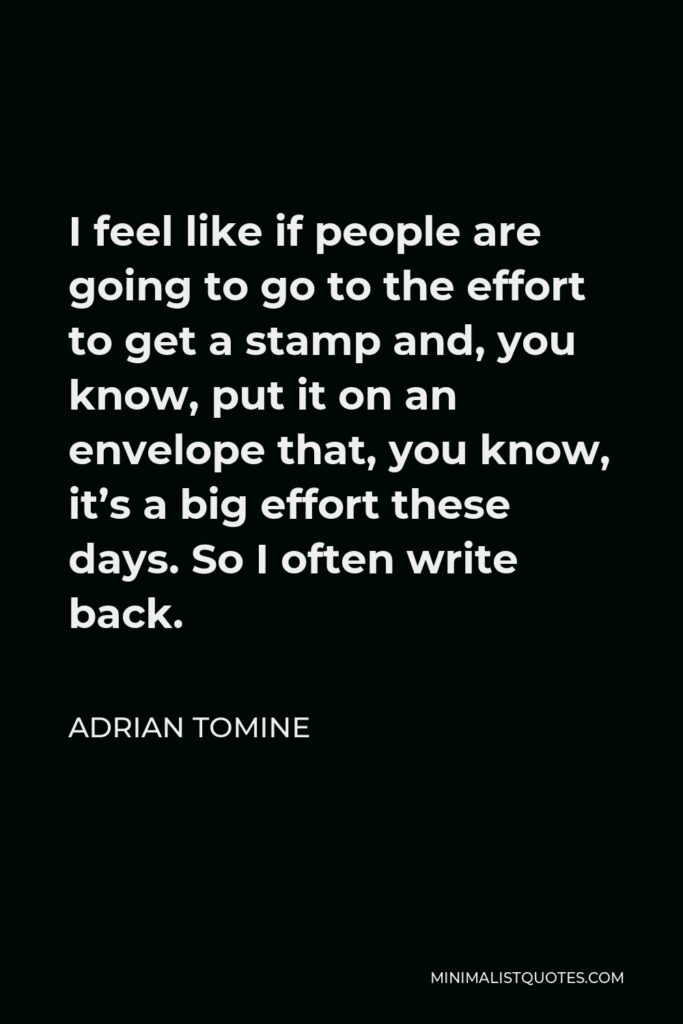

I feel like if people are going to go to the effort to get a stamp and, you know, put it on an envelope that, you know, it’s a big effort these days. So I often write back.
ADRIAN TOMINE -





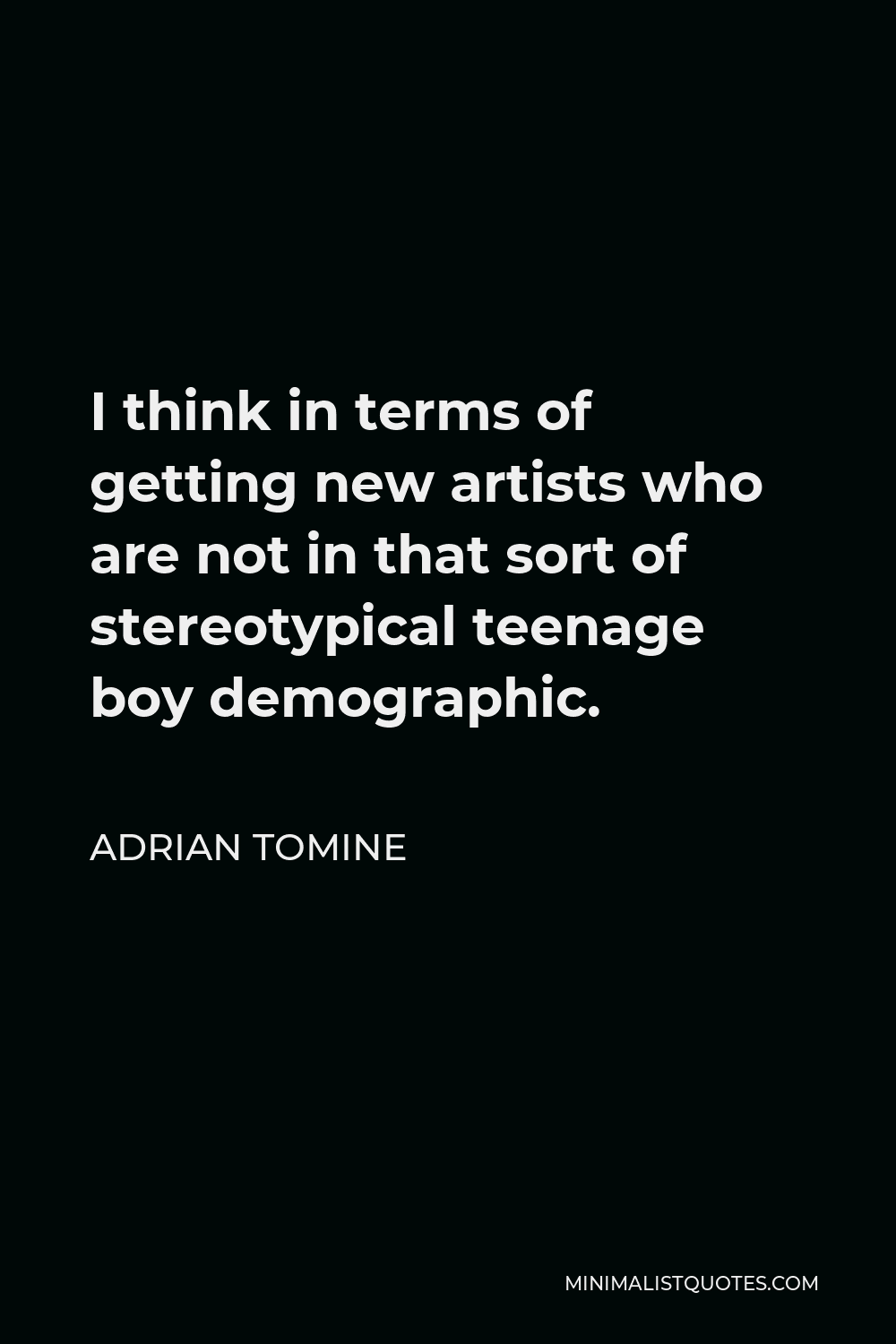
I think in terms of getting new artists who are not in that sort of stereotypical teenage boy demographic.
ADRIAN TOMINE -





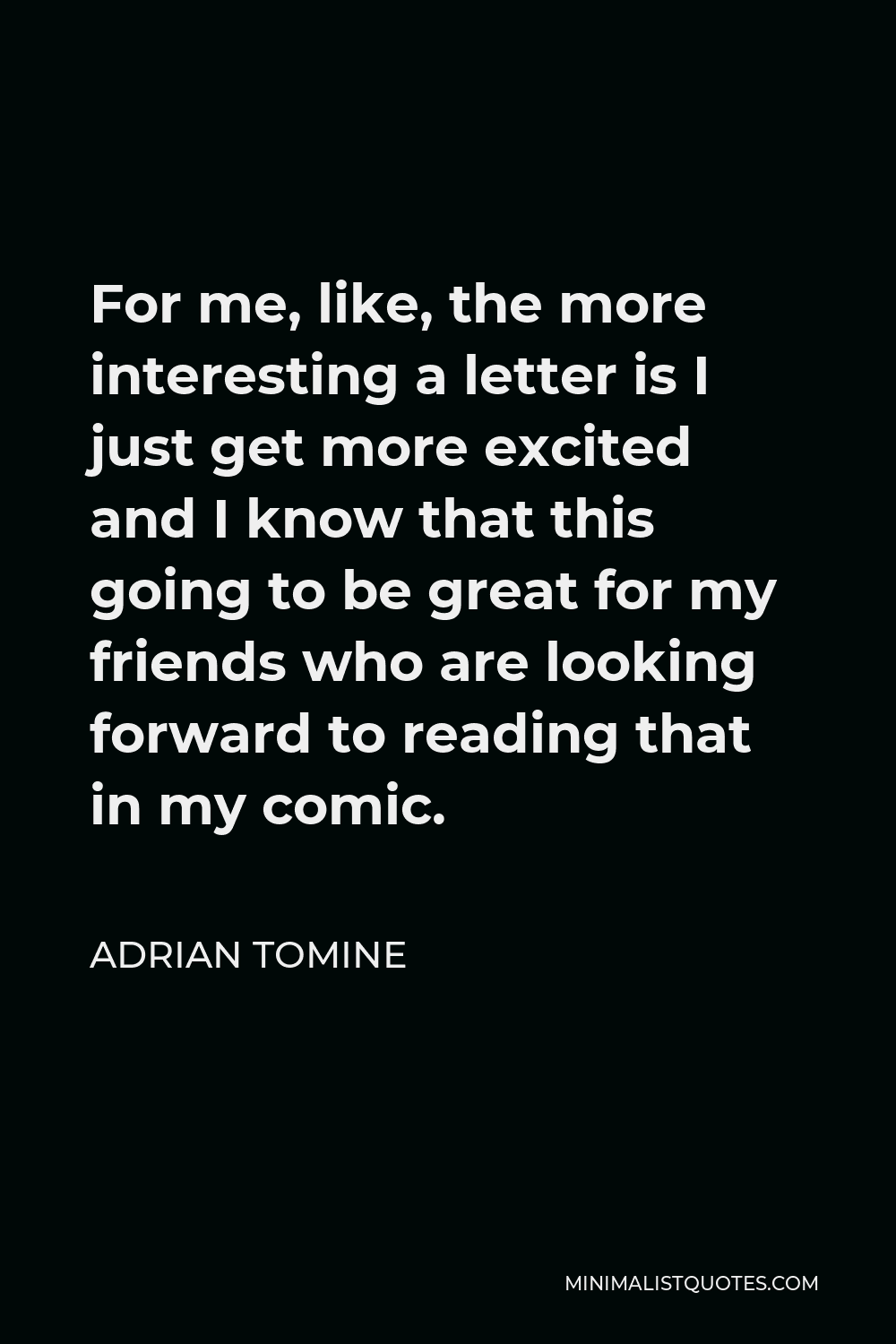
For me, like, the more interesting a letter is I just get more excited and I know that this going to be great for my friends who are looking forward to reading that in my comic.
ADRIAN TOMINE -





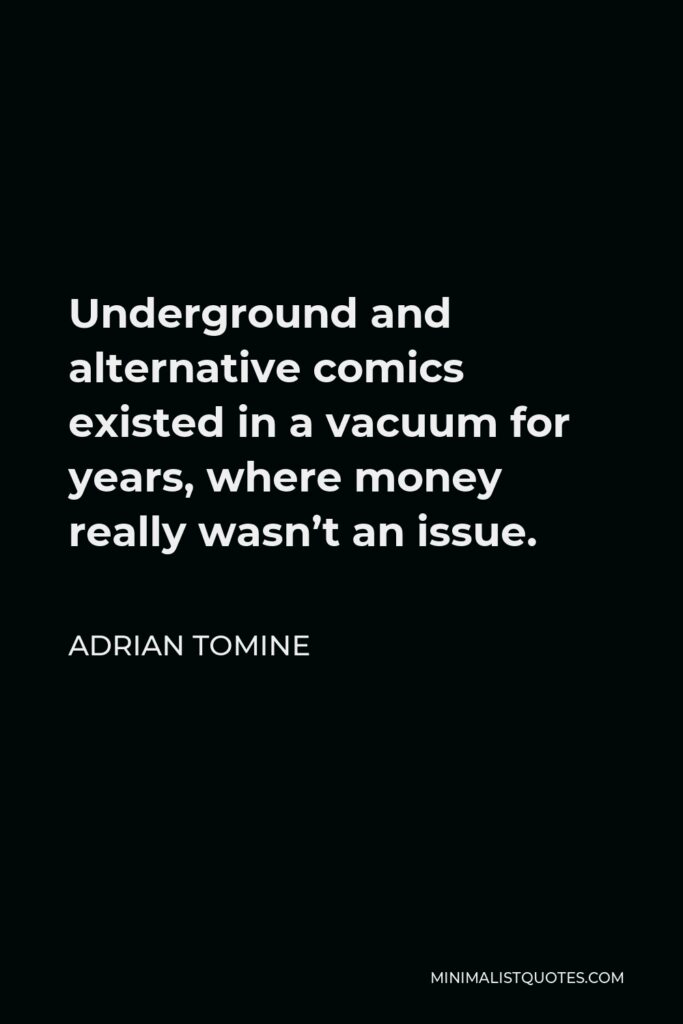

Underground and alternative comics existed in a vacuum for years, where money really wasn’t an issue.
ADRIAN TOMINE -





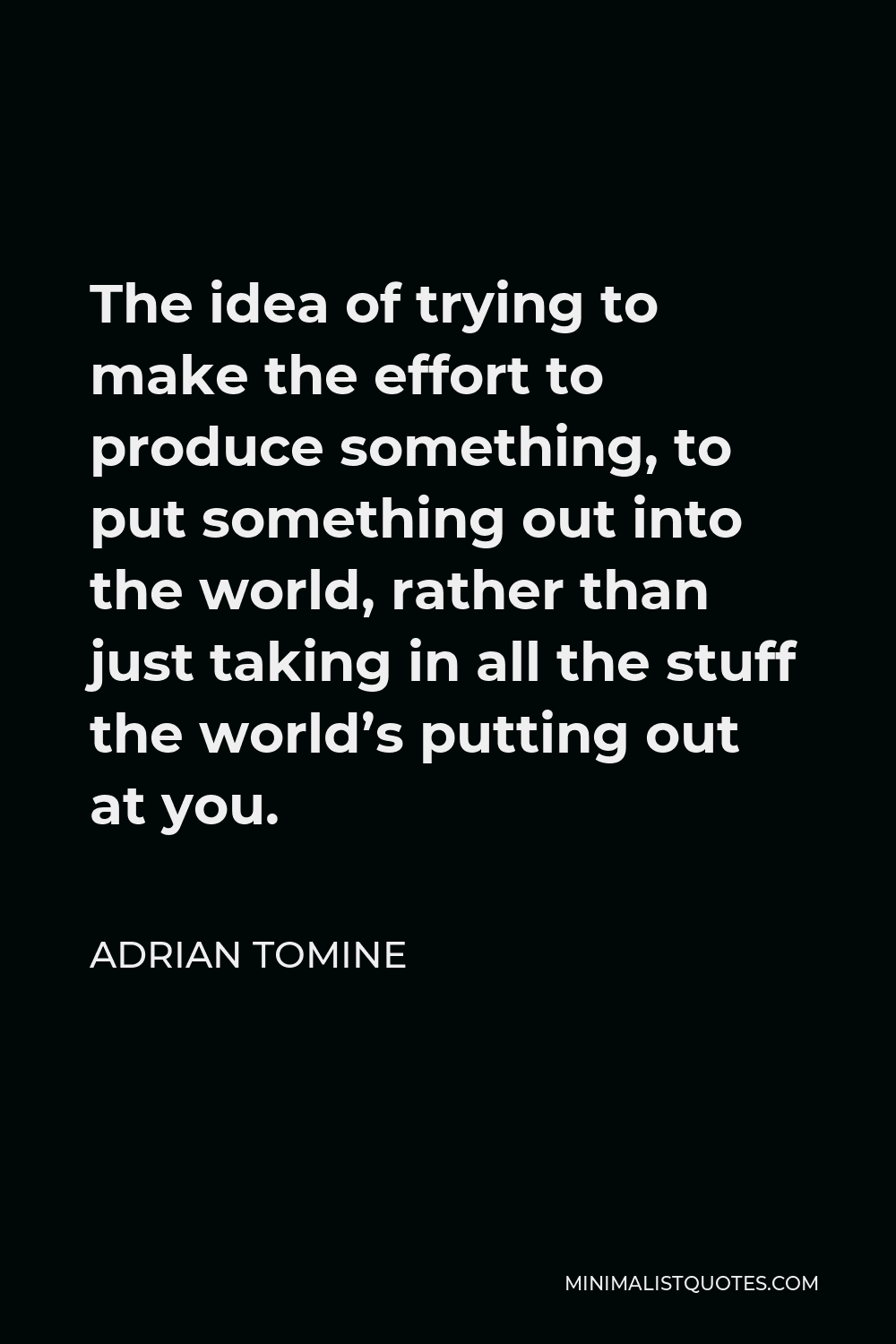
The idea of trying to make the effort to produce something, to put something out into the world, rather than just taking in all the stuff the world’s putting out at you.
ADRIAN TOMINE -





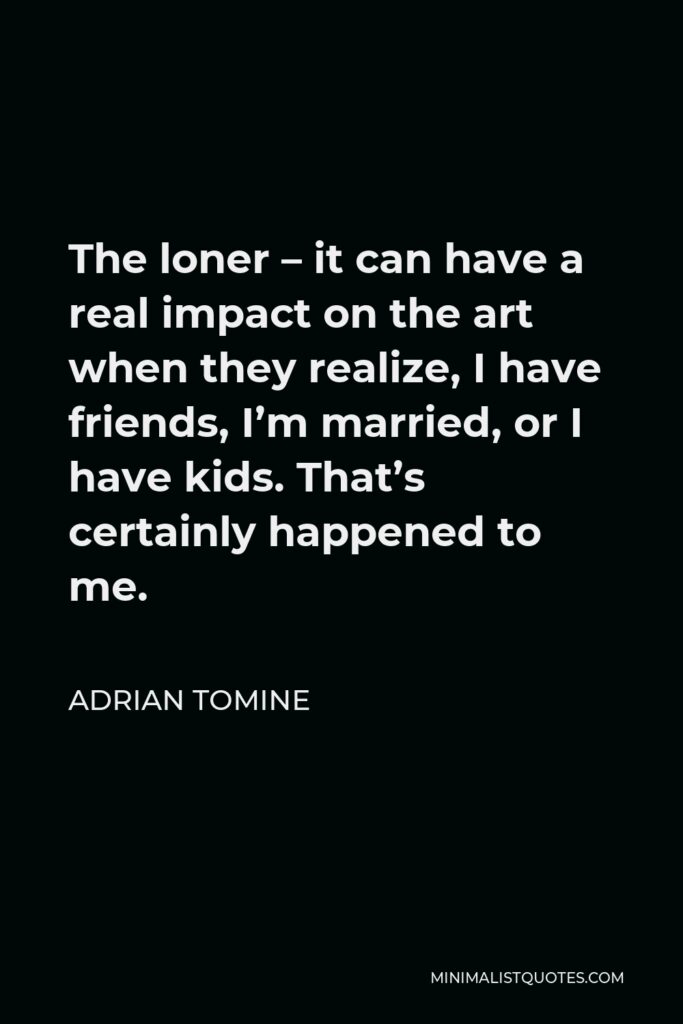

The loner – it can have a real impact on the art when they realize, I have friends, I’m married, or I have kids. That’s certainly happened to me.
ADRIAN TOMINE -





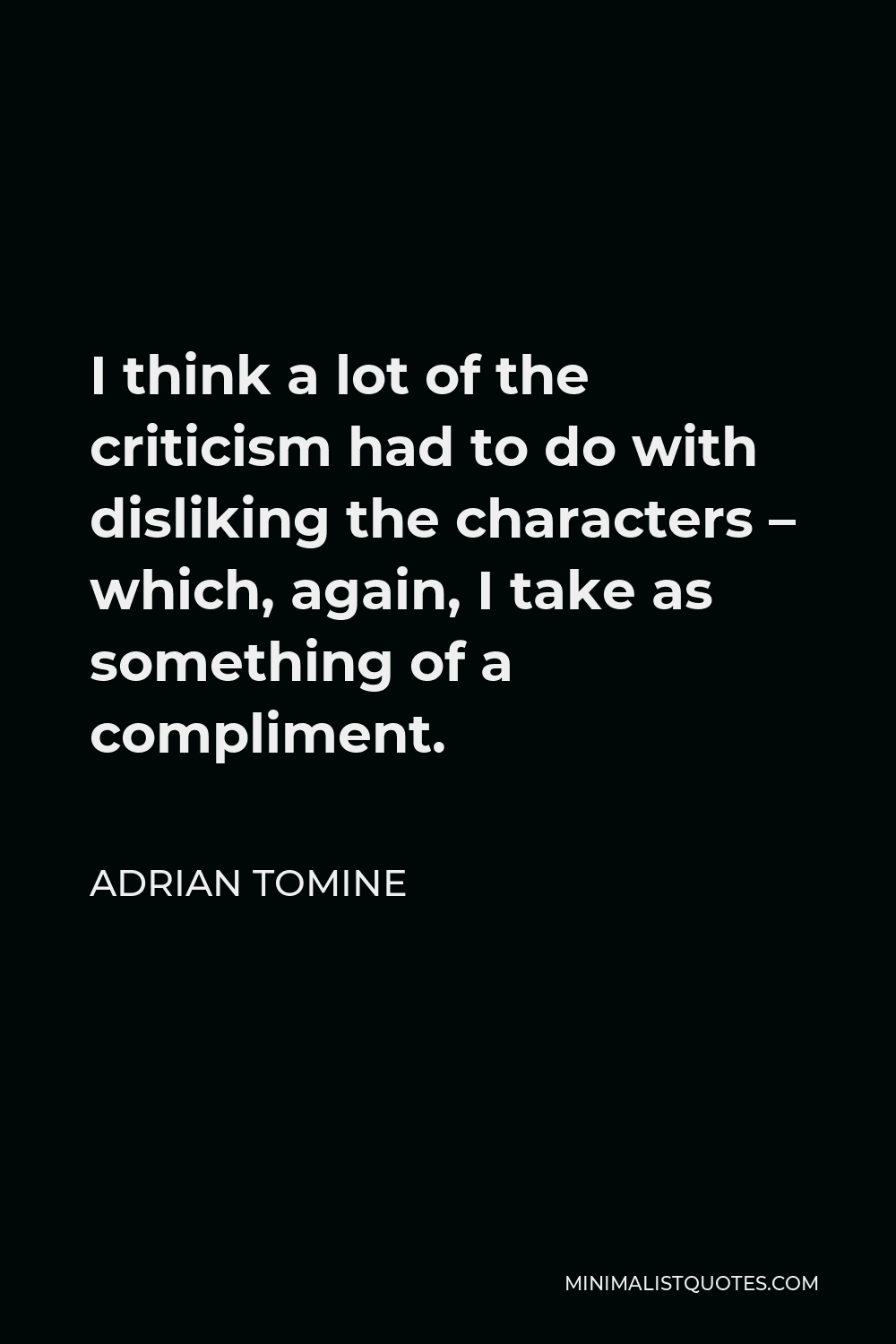
I think a lot of the criticism had to do with disliking the characters – which, again, I take as something of a compliment.
ADRIAN TOMINE -





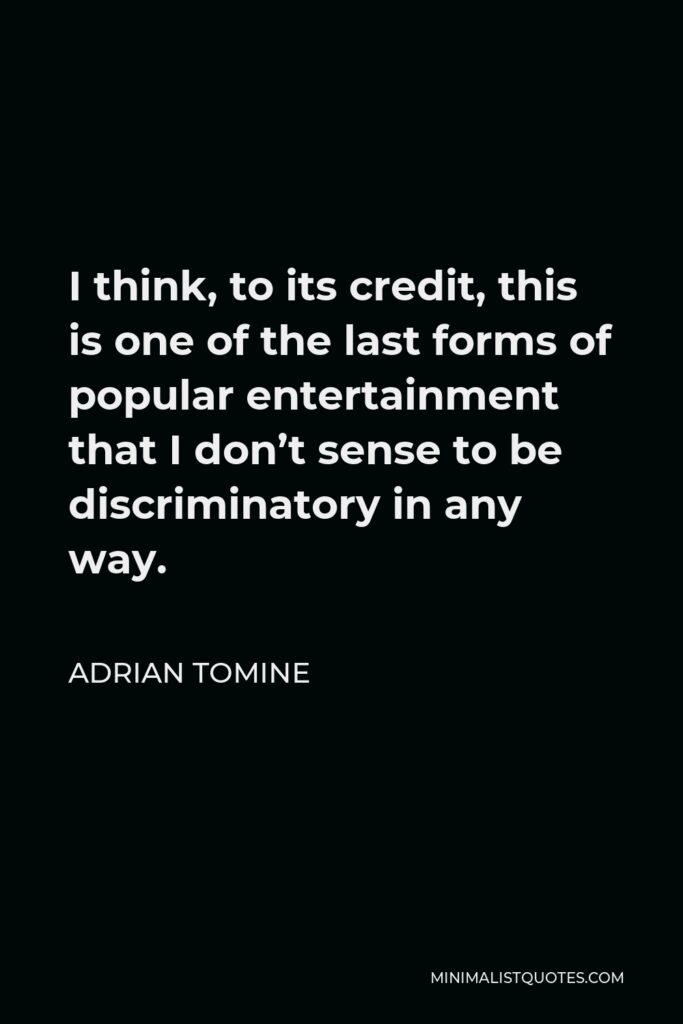

I think, to its credit, this is one of the last forms of popular entertainment that I don’t sense to be discriminatory in any way.
ADRIAN TOMINE -





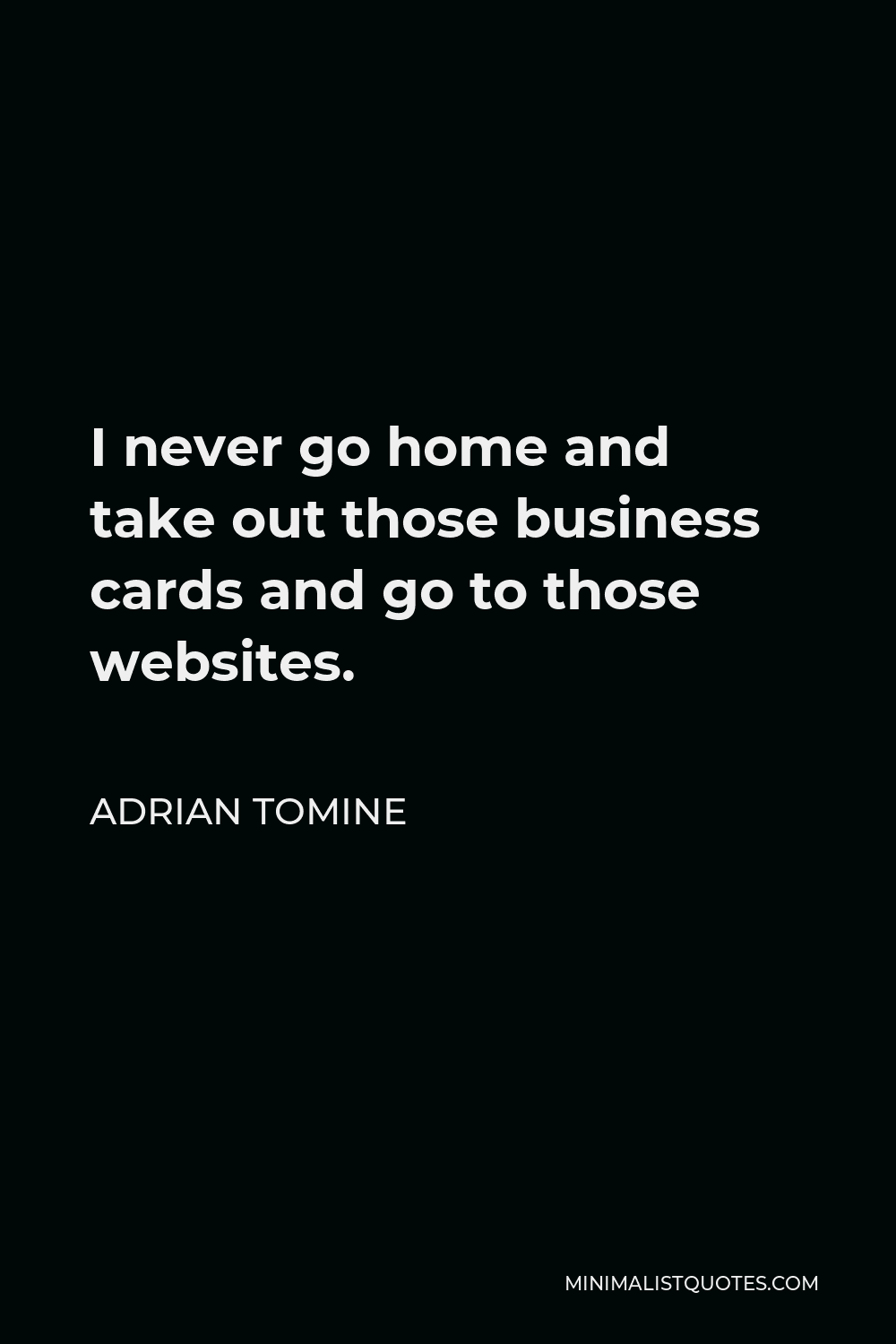
I never go home and take out those business cards and go to those websites.
ADRIAN TOMINE -





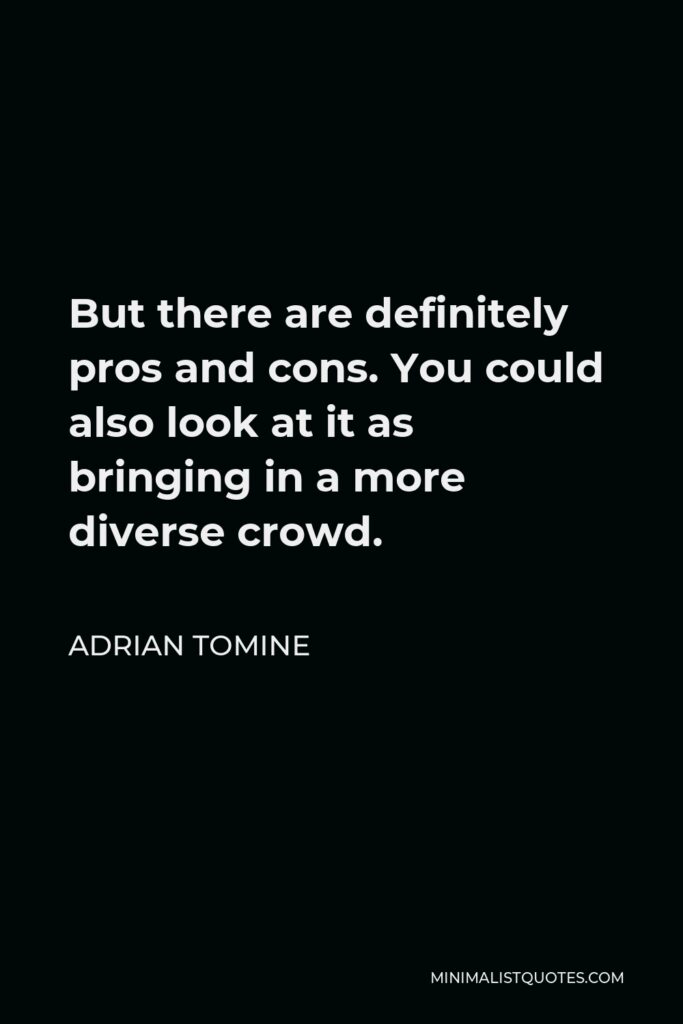

But there are definitely pros and cons. You could also look at it as bringing in a more diverse crowd.
ADRIAN TOMINE -





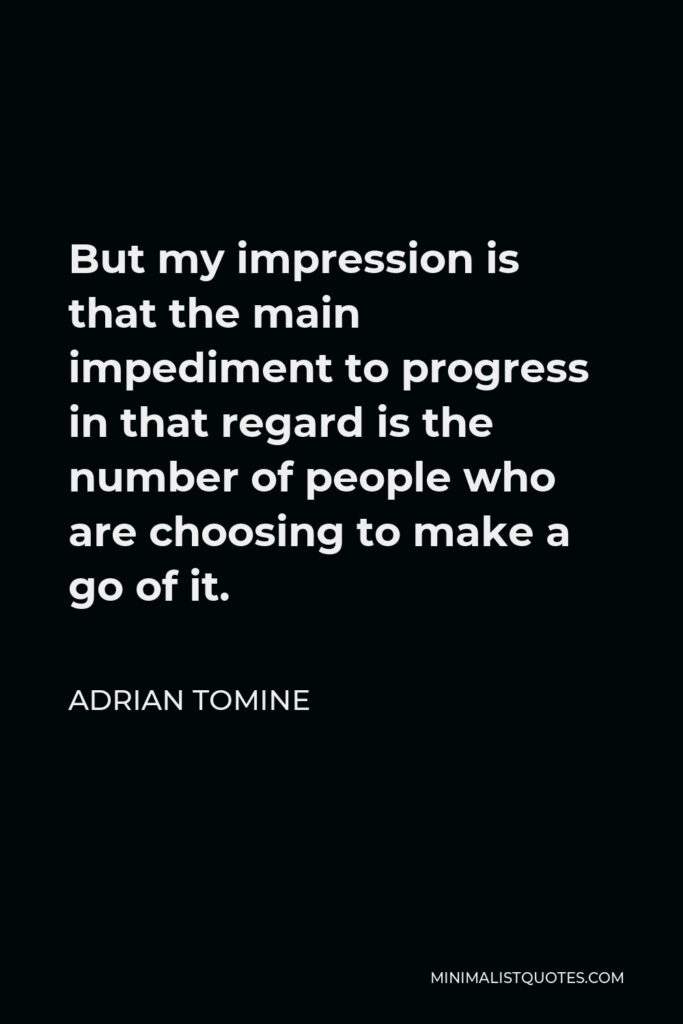

But my impression is that the main impediment to progress in that regard is the number of people who are choosing to make a go of it.
ADRIAN TOMINE -





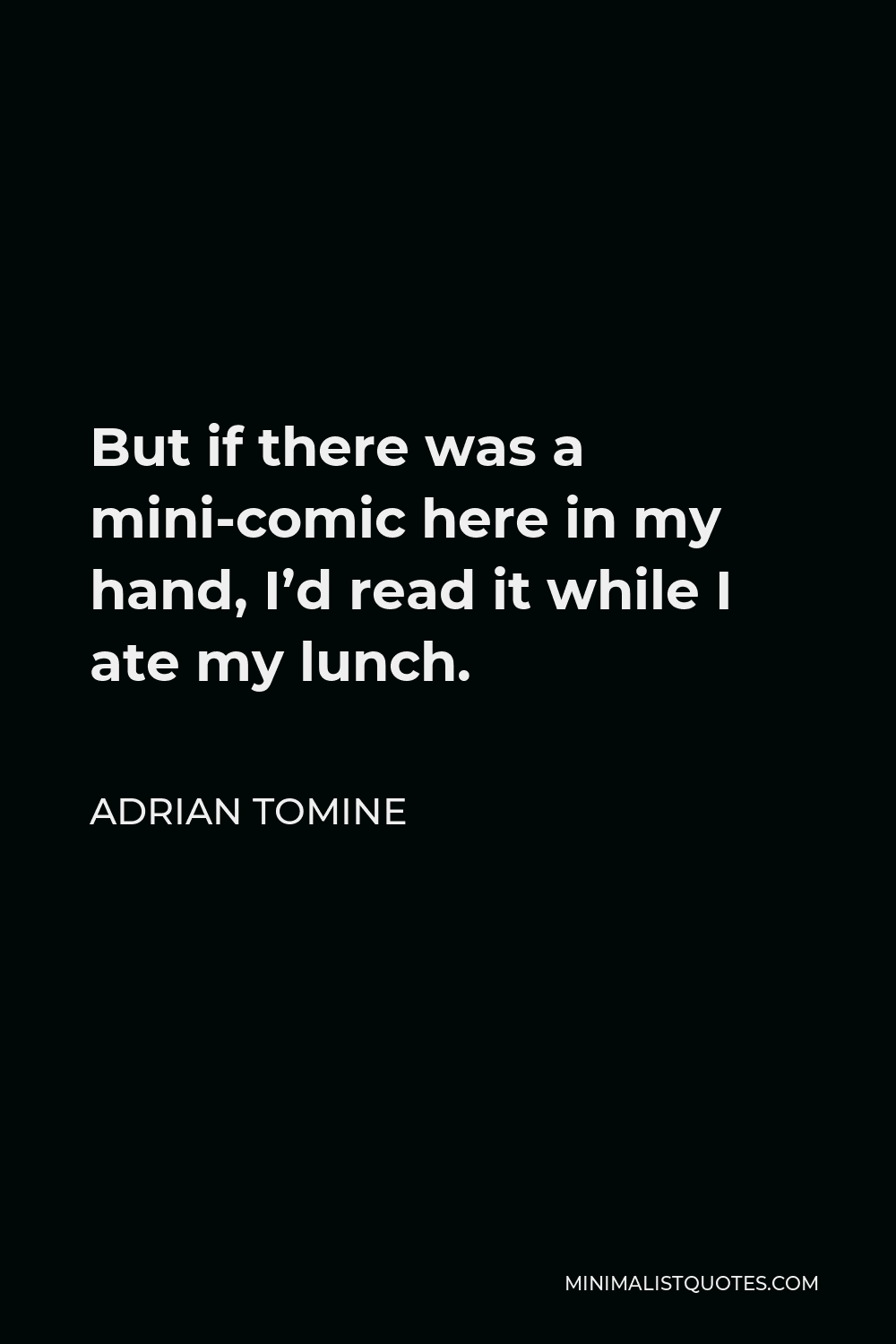
But if there was a mini-comic here in my hand, I’d read it while I ate my lunch.
ADRIAN TOMINE -





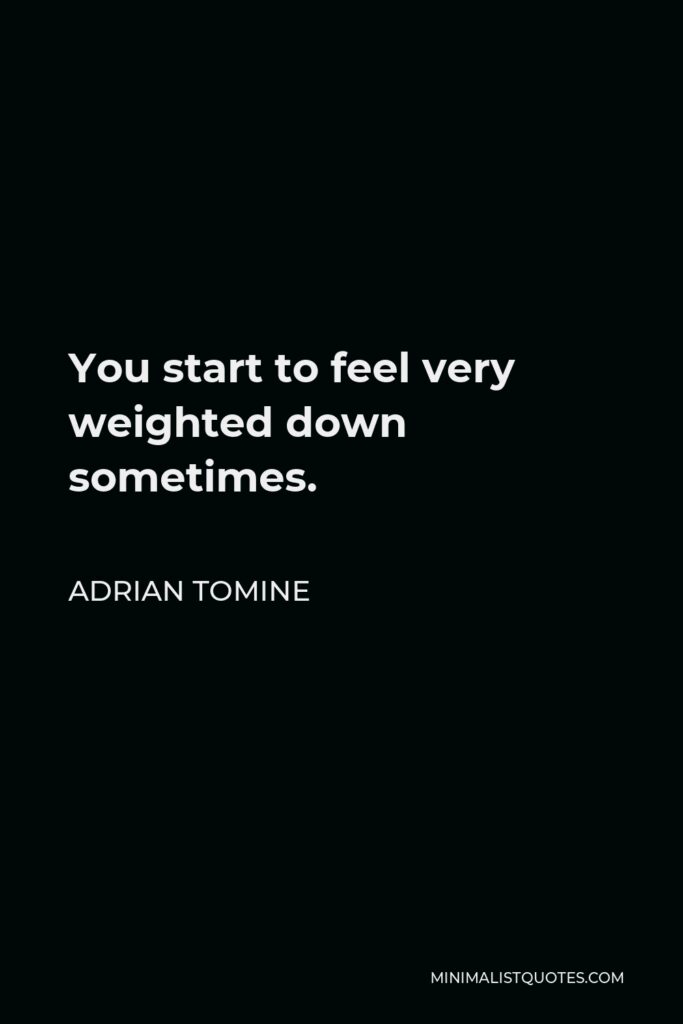

You start to feel very weighted down sometimes.
ADRIAN TOMINE -





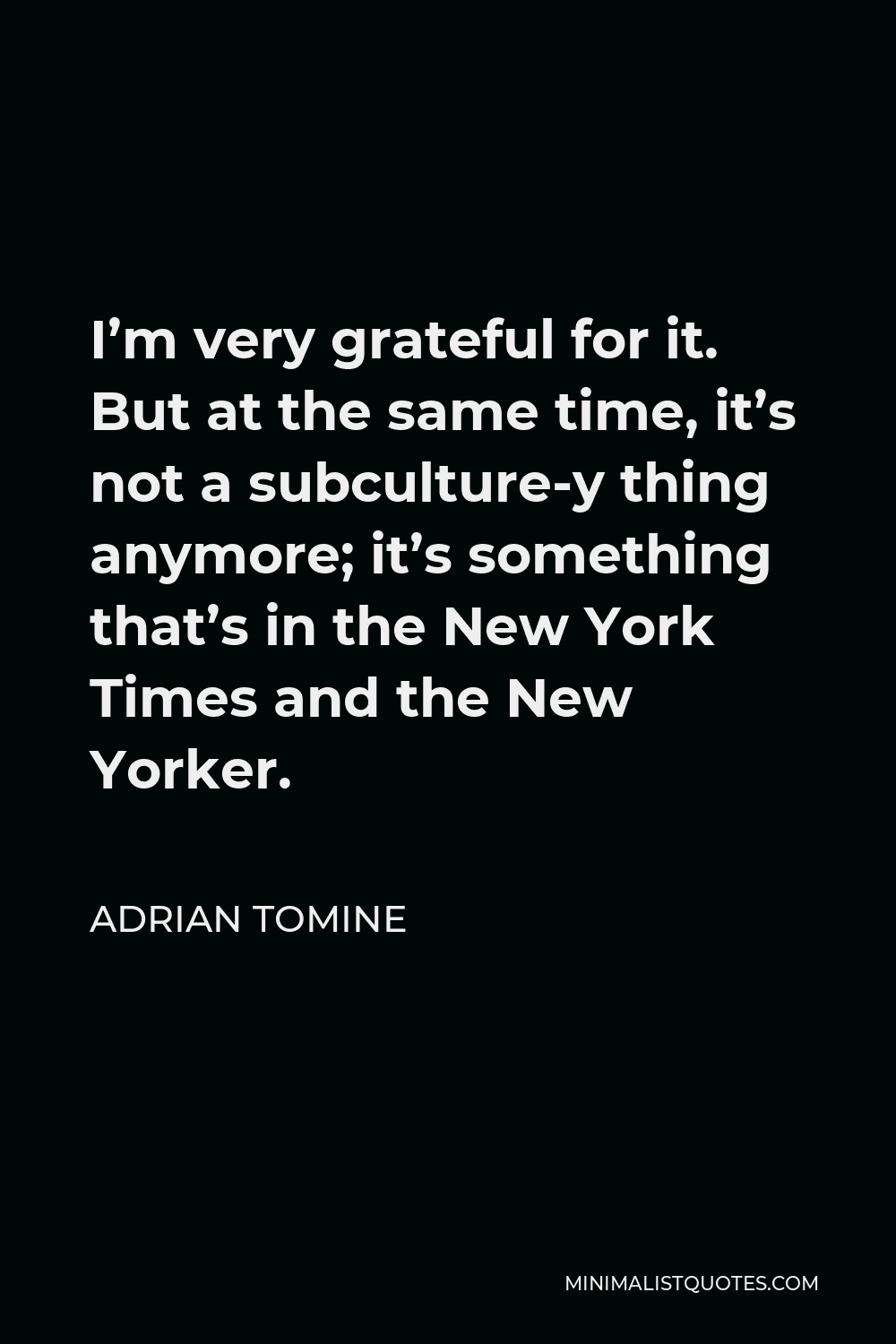
I’m very grateful for it. But at the same time, it’s not a subculture-y thing anymore; it’s something that’s in the New York Times and the New Yorker.
ADRIAN TOMINE
